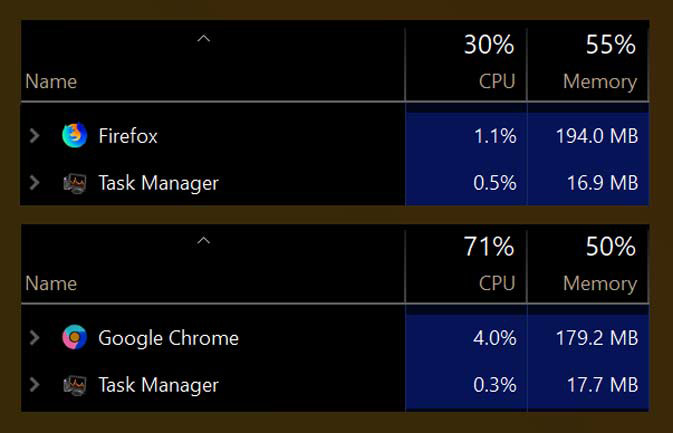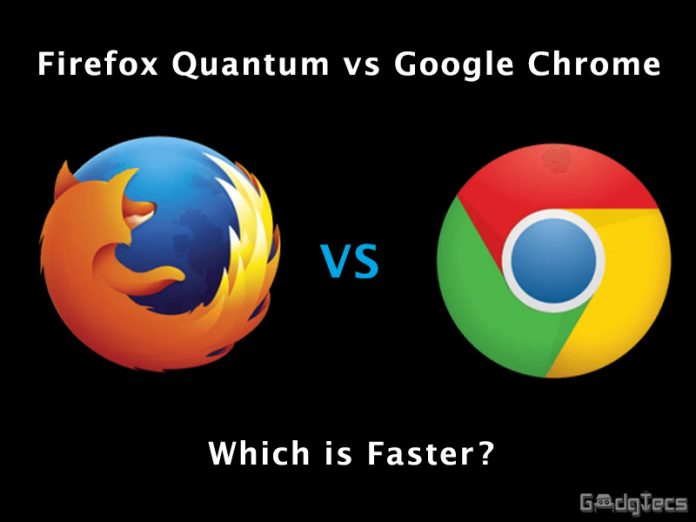Accompanying each new web browser version update is a flood of claims that it’s faster than the rest that are available on the web. And why not? In a crowded market, where brand value matters and personal preferences reign, anything that may shift attention for some minutes is welcome. So with this week’s release of Firefox Quantum, the most recent incarnation of Mozilla’s stalwart browser, the company’s boast about its latest version being speedier than Google Chrome was pronounced more rapidly than, well, you can open a new tab.
Mozilla insists that Quantum’s “crazy powerful browser engine” makes the process of loading web pages twice as quick, compared to Google’s flagship browser. It additionally claims that it is 30 % lighter when it comes to memory (RAM) usage. However is any of it true?
To wade through all of the braggings and unearth some details, we fired up a sequence of benchmark tests and did some real-world investigation to get a better concept of the performance of each browser under normal utilisation. All the tests on Mozilla’s Firefox Quantum 57 and Google’s Chrome 61.0.3163.100 were carried out on the same Windows 10 laptop, a Dell XPS 13 machine with 16GB RAM and a 2.5GHz Intel Core i7-7660U dual-core processor.
Benchmark Tests
First in the regimen of synthetic benchmark tests that we did was WebXPRT 2015, a test that’s made up of six JavaScript-based and HTML5 workloads that cover a variety of primary, everyday tasks. Firefox Quantum was the winner here, with a score of 491 (from a mean of five runs, with the highest and lowest results excluded) to Chrome’s 460 — however that wasn’t quite the entire story. Whereas Firefox performed noticeably better on the Explore DNA Sequencing and Organize Album workloads, Chrome proved more proficient at Local Notes and Photo Enhancement, demonstrating that both browsers have completely different strengths.

Things were closer still on BrowserBench’s JetStream 1.1. Described as “a JavaScript benchmark suite centred on the most advanced net applications,” JetStream 1.1 makes use of greater than three dozen assessments to measure browser latency and throughput and to provide a geometrical average of the scores (which is what we’re reporting below). Mozilla’s Firefox Quantum was quicker here, too, with a score of 183.1 to Google Chrome’s 178.4.
 You might think that Octane 2.0, which started out as a Google Developers project, would favour Chrome — and you would be (barely) right. This JavaScript benchmark runs 21 individual assessments (over such functions as core language features, strings and arrays, bit and math operations, and more) and combines the results into a single rating. Chrome’s was 35,622 to Firefox’s 35,148 — a win, if only a minuscule one.
You might think that Octane 2.0, which started out as a Google Developers project, would favour Chrome — and you would be (barely) right. This JavaScript benchmark runs 21 individual assessments (over such functions as core language features, strings and arrays, bit and math operations, and more) and combines the results into a single rating. Chrome’s was 35,622 to Firefox’s 35,148 — a win, if only a minuscule one.
 Browser Loading Time
Browser Loading Time
Though you may frequently think about the boot time of your pc (especially if it is old), the start time of individual applications tends to be ignored more often. When you click on an icon, you want it to open, and if it lags, you notice. (We’re looking at you, Adobe Photoshop — however, you do a ton of stuff, so it is okay.) Given how simple an online browser is, it does not seem too much to ask that it open instantly.
The good news here is that you get that with both Google Chrome and Firefox Quantum. We used PassMark AppTimer to measure the timing of opening and closing fifty windows of each browser, and we rebooted the laptop before switching between them. With a mean time of 0.287 seconds, Firefox won once again. However since Chrome averaged 0.302 seconds, you do not have to fret either way. The difference (0.015 seconds) is hardly noticeable.
Memory Utilization
If there is a natural enemy of internet-browser performance, it is RAM usage. More or less since their advent, web browsers have tended to gobble up memory resources and compound the problem with every new window or tab you open. However though the gradual uptick of RAM amounts in most computers has mitigated this problem considerably, it’s still an issue — and something that you want to be aware of.
To decide which browser (if either) was less of a mud-wallowing memory hog, we gathered together a list of 10 popular web sites, including Reddit, Facebook, Twitter, (fake new?) CNN, (right-wing propaganda?) Fox News ;-), ESPN; and others. We then opened all of them in individual tabs inside one browser window (with a video being played on the YouTube tab) and used the Windows Task Manager to observe the memory utilization after 5 minutes. (As we did earlier, we rebooted the laptop before switching to the other browser).
 Once more, the results were close. Chrome used marginally less RAM just running its main app (a mean of 126.3 MB versus 145.3 MB for Firefox), and it averaged lower memory usage throughout all the background processes it started when it ran (1,362.4 MB across 13 processes, in comparison with Quantum’s 1,400.5 MB across a consistent 6).
Once more, the results were close. Chrome used marginally less RAM just running its main app (a mean of 126.3 MB versus 145.3 MB for Firefox), and it averaged lower memory usage throughout all the background processes it started when it ran (1,362.4 MB across 13 processes, in comparison with Quantum’s 1,400.5 MB across a consistent 6).
You May Like: Google To Reject All Flash Based Ads From July
The information changed a bit when more tabs had been involved. With 30 tabs open, Firefox Quantum averaged 3,883 MB of RAM from 6 processes, and Google’s Chrome averaged 4,151.3 MB from 34 processes. As Mozilla touts Quantum’s facility with multiple tabs, this is good to know, though Firefox was a bit more sluggish keeping up with numerous simultaneous YouTube video streams. (Both browsers flipped through and closed tabs snappily). It is worth noting that although in 2 of our 3 tests, Firefox Quantum did finish better, in no case did it live up to Mozilla’s claim that Quantum consumes “roughly 30 % less RAM than Chrome.”
So, Is Firefox Quantum Really Faster Than Chrome?
Quantum delivers on the spirit of Mozilla’s promises. It did exhibit speed increases, albeit ones that were usually modest and intermittent, and memory savings that were noticeable only with loads of active browser tabs. What this proves, though, is that regardless of which browser you select, you are getting one that’s capable and decently quick. Both can handle all of the content you are likely to encounter during your regular browsing sessions. And that, more than performance that’s a little bit better here or there, is what matters the most.










